Reviews
Les quatre cents coups
François Truffaut
France, 1959
Credits
Review by Victoria Large
Posted on 01 April 2010
Source Criterion Collection DVD
There are times when reviews feel redundant. Writing about a little-seen gem from decades past or a great new film that’s flying just under the radar offers a thrill akin to that of sharing a particularly juicy secret. But writing on a canonical film like The 400 Blows has almost stymied me. François Truffaut’s early masterpiece, the first in his five-film Antoine Doinel cycle, is an arthouse staple that certainly hasn’t been waiting on a vote of confidence from me.
But then again, I have loved The 400 Blows for pretty much the entirety of my adult life. It was my first Truffaut and the one that hooked me, and, what’s more, I revisit the film with unusual frequency, always knowing before it’s ended that I’ll return to it yet again. The 400 Blows will always be with me, and it’s worth exploring why it continues to have such an impact.
The 400 Blows inspires the kind of compulsive rewatching that dedicated movie lover and critic Truffaut engaged in during his youth, but each time I view it again, I never feel as though I’ve seen quite the same film. Sometimes its tragic elements feel like its most pronounced feature. Our protagonist Antoine Doinel, brought disarmingly to life by young Jean-Pierre Léaud, is one of cinema’s archetypal tough-luck kids, unwanted at home and misunderstood most everywhere. In an interview from 1959 that was later quoted in Dominique Rabourdin’s exhaustive chronicle Truffaut by Truffaut, the director explained that he and writing partner Marcel Moussy were only trying to reflect the reality of adolescence. “If there was a thesis behind our film,” he said, “it would be this: adolescence leaves pleasant memories only for adults who can’t remember.”1
The treatment of some of the children in the film is jaw-dropping. Antoine is jailed like an adult criminal after stealing a typewriter and attempting to return it, and he’s then shipped off to a center for juvenile delinquents by parents who are happy to be rid of him. Yet for all of the heartbreak of The 400 Blows, there are also pockets of happiness that comprise some of its most vivid moments. One such instance comes when Antoine and his parents go on a rare, happy outing to the movies. Piling into their car, the family laughs and discusses the film. For once Antoine’s parents are not bickering with each other or scolding him, and we’re reminded that even the most miserable families have their moments. Another joyous scene comes when Antoine, playing hooky from school, rides the centrifuge at a local carnival. Truffaut’s camera lingers as the boy is pinned to wall of the ride, laughing even as he gasps for breath, enjoying a moment of gravity-defying ecstasy. These bits of joy keep the film from descending into unremitting misery, grounding it instead in a multifaceted reality that we can recognize.
And I’m sometimes surprised to remember how funny the film is. The humor that features heavily in Truffaut’s later Antoine Doinel pictures is present here, often manifesting itself in the director’s eye for absurd minutiae: an early classroom shot finds one of the pupils making a growing mess of himself with ink; Antoine wipes his coal-stained hands on his parents’ curtains without a second thought; a gym teacher, leading his class through town, doesn’t realize that the line of children behind him is growing shorter every moment, the children running off to find whatever fun they can. There’s even something simultaneously funny and sad about fourteen-year-old Antoine’s determination to make it on his own each time he leaves his home (finally running away for good). “I’ll prove I can become a man,” he writes in a letter to his parents, a statement grandiose enough that one isn’t sure whether to laugh at the kid or cry for him.
But no one in this film has the answers. The adults are mostly hapless, caught up in silly arguments, guilty extramarital affairs, and dead-end jobs. They can’t show Antoine the way because they don’t know it themselves. Truffaut’s famous freeze-frame ending, which finds Antoine standing alone on a beach, with no clear future ahead of him, punctuates this chapter of the Doinel story with a bold question mark. Perhaps that is why The 400 Blows still feels so vital after over fifty years. It’s neither tragedy nor comedy, as complicated as growing up, as textured as life itself.
- Truffaut by Truffaut, ed. Dominique Rabourdin, 57. ↩
More Love on the Run: The Films of François Truffaut
-

Les Mistons
1957 -
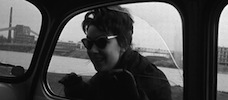
Une histoire d’eau
1958 -
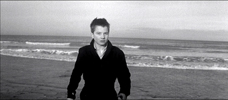
The 400 Blows
1959 -
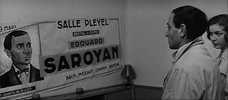
Shoot the Piano Player
1960 -
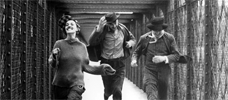
Jules and Jim
1962 -
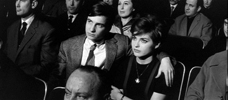
Antoine and Colette
1962 -
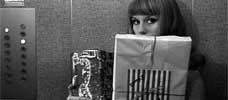
The Soft Skin
1964 -
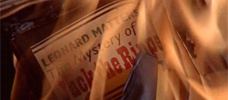
Fahrenheit 451
1966 -
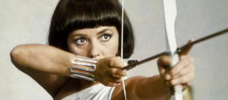
The Bride Wore Black
1968 -
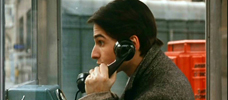
Stolen Kisses
1968 -
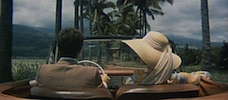
Mississippi Mermaid
1969 -
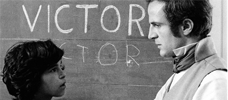
The Wild Child
1970 -

Bed and Board
1970 -

Two English Girls
1971 -
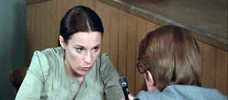
Such A Gorgeous Kid Like Me
1972 -
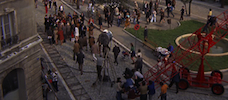
Day for Night
1973 -
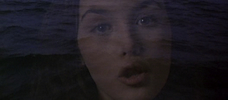
The Story of Adele H.
1975 -
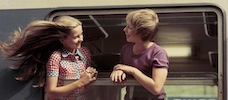
Small Change
1976 -
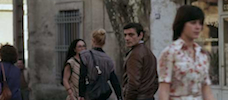
The Man Who Loved Women
1977 -
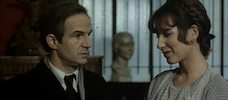
The Green Room
1978 -
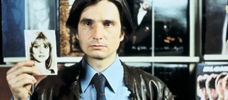
Love on the Run
1979 -
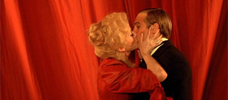
The Last Metro
1980 -
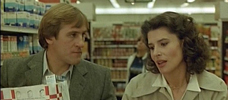
The Woman Next Door
1981 -
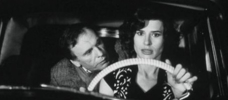
Confidentially Yours!
1983
We don’t do comments anymore, but you may contact us here or find us on Twitter or Facebook.



